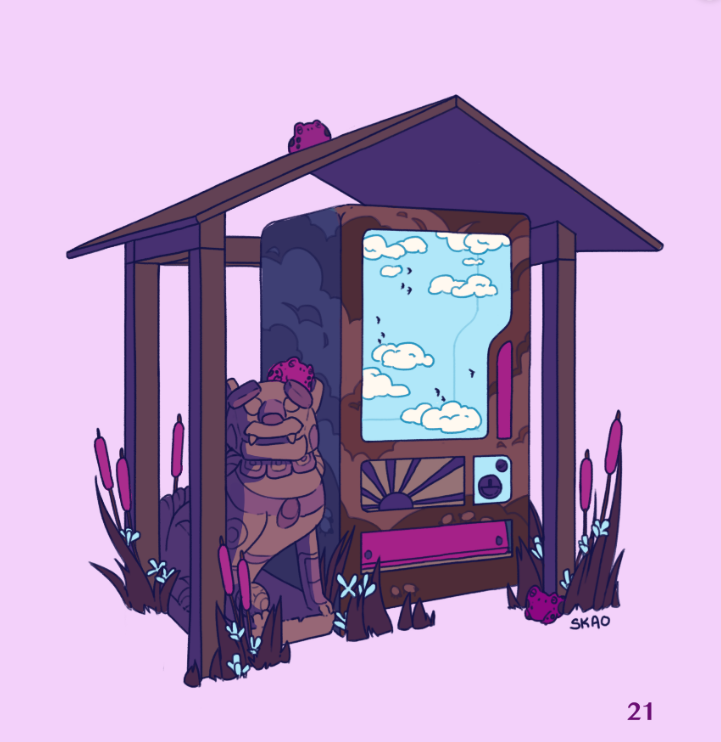I’m sorry did you say street magic is an indie TTRPG by Caro Ascerion based around collaborative city building and exploration. While urban engineering was never my strong suit, this TTRPG is about discovering the soul of a city through its creation rather than actual infrastructure.
When picking a TTRPG to play, we wanted to play something as far from the traditional Dungeons & Dragons as possible to counterbalance our pre-established notions of what a TTRPG looks like. I’m sorry did you say street magic is GM-less, stat-less, and dice-less, focusing more on collaborative storytelling than combat or chance.
The lack of a GM creates an equal playing field for all players to create, embellish, and steer the narrative as they see fit. There are no unequal power dynamics or a pre-established narrative to play through. Instead, at the start of each round a new player declares a compass, or a starting point for creation that the other players build around. The compass acts as a structure for players to build off of and prevents chaos and confusion without limiting player agency.
Just as no GM with supreme power, no player has any advantage over another. Each player has the opportunity to add a neighborhood, landmark, or resident around this compass, as well as contribute to each other’s turns in the form of NPC vignettes, events, or playing off other player’s additions to the city. There are no player characters to guide or limit their actions but all players have the opportunity to place characters within the world and interact with them as NPCs.
Since each player has equal agency in the creation of the city, the “chance” elements in the game are the other player’s additions to the city. No player has the power to veto or change another person’s addition. However, the compass player for that round may initiate an event at the end of the round that shakes the foundations of everything they have built. Each player has an opportunity then to describe the ramifications of that event across the city, allowing them input on what that event actually means.
The equalization of power across players also lends itself to a unique win-state, as in there is none. A session ends when the players feel it is time to wind down. Then the rules encourage them to discuss their experience with one another and what they still want to explore if there is a next session. The ethos of the game allows for that sort of “the journey is what matters” ending because there is no competition or goal other than to build a city and enjoy it.
No model of TTRPG is inherently better than any other but I will say this model of collaboration and exploration is an accessible intro to TTRPGs and a breath of fresh air for life-long players. The accessibility, collaborative spirit, and equal agency of this game encourages positive but casual social interaction without conflict or stress.
I would recommend this game to anyone looking for a low-stakes way to socialize and learn more about each other as a person’s ideas of a city, aesthetics, and the characters they create can reveal a lot about them. Check it out on itch.io: i’m sorry did you say street magic by Caro Asercion (itch.io)

